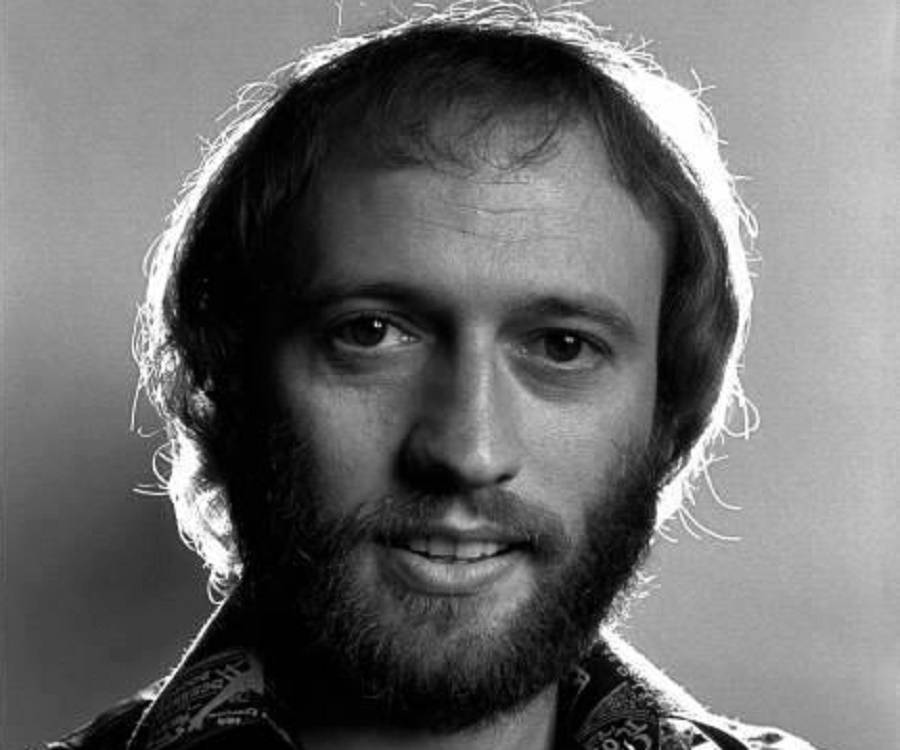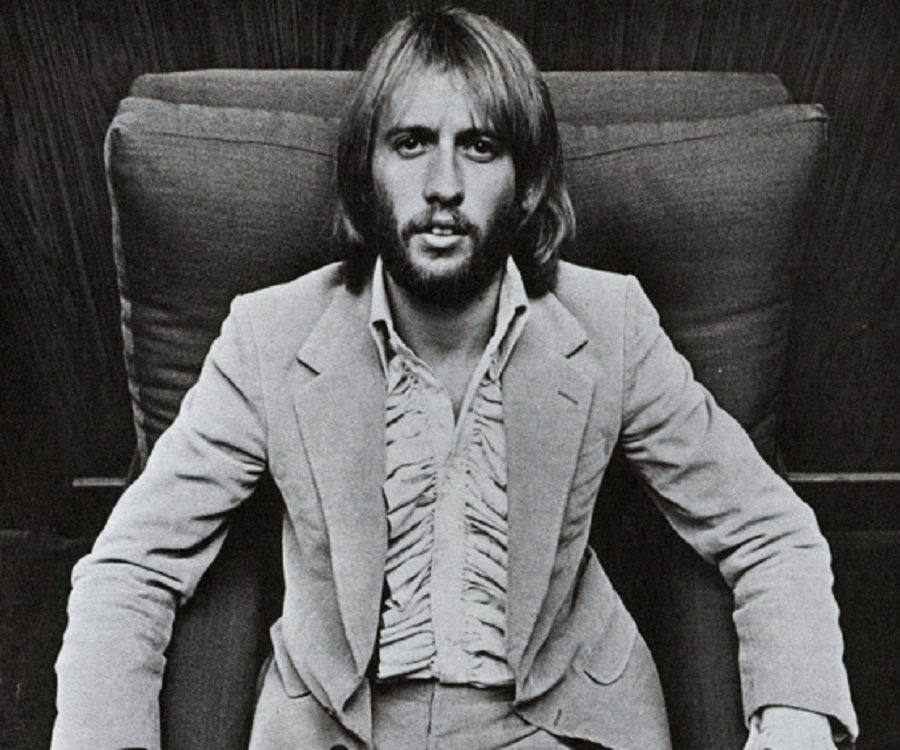What Type Of Surgery Did Maurice Gibb Have? Unpacking A Tragic Loss
Many people still wonder about the circumstances surrounding Maurice Gibb's passing, especially the medical details. It's a question that, quite frankly, brings up a lot of sadness for fans and music lovers everywhere. We often remember the Bee Gees for their incredible harmonies and catchy tunes, but there's also a deep human story behind the lives of these talented individuals. This piece aims to shed some light on a very difficult time for the Gibb family, focusing on the health challenge Maurice faced and the medical steps taken, you know, to try and help him.
When someone famous leaves us too soon, there's a natural curiosity about what happened. For Maurice Gibb, a true musical powerhouse, his sudden departure left many with questions. People want to understand the specifics, the medical situation that led to such a profound loss. This article, in a way, aims to give you a clear picture, helping to answer that very specific query about the kind of medical procedure he underwent.
Understanding these moments, even years later, can be a way of honoring someone's memory. It's a bit like learning a new skill; you take it one step at a time, gathering the facts. So, we're going to explore the details of Maurice's final days, focusing on the surgery he had and the condition that brought him to that point. It's important to approach this with care, remembering the person behind the music, and the challenges he faced.
Table of Contents
- Maurice Gibb: A Brief Look at a Musical Icon
- The Health Scare: What Happened to Maurice Gibb?
- The Complications and Tragic Outcome
- Remembering Maurice Gibb's Legacy
- Frequently Asked Questions About Maurice Gibb's Health
Maurice Gibb: A Brief Look at a Musical Icon
Maurice Ernest Gibb, a name forever connected with the legendary Bee Gees, truly played a central role in shaping popular music for decades. Born in the Isle of Man, he, along with his brothers Barry and Robin, formed one of the most successful musical groups of all time. His contributions were, you know, pretty significant, often providing the steady bass lines, keyboards, and those distinctive harmony vocals that made the Bee Gees sound so unique. He was, in a way, the glue that held much of their sound together.
His musical journey began very early, and the Bee Gees saw success across many eras, from their early pop hits to their disco dominance in the 1970s and beyond. Maurice, you see, was a multi-instrumentalist, equally comfortable on guitar, bass, piano, and even drums. This versatility was a huge part of the band's ability to adapt and stay relevant for so long. He was, quite honestly, a quiet force within the group, yet his presence was absolutely vital.
Beyond the music, Maurice was known for his warm personality and his sense of humor. He was, apparently, the peacemaker among the brothers, often helping to smooth things over when creative differences arose. His personal life, like anyone's, had its ups and downs, but his dedication to his family and his music always seemed to shine through. He was, in some respects, a very down-to-earth person despite his massive fame.
- What Does It Mean When A Guy Calls You A Snow Bunny
- Who Is Eliza Sams Husband
- What Is A Buckle Bunny Slang For A Girl
Personal Details & Bio Data
| Detail | Information |
|---|---|
| Full Name | Maurice Ernest Gibb |
| Born | December 22, 1949 |
| Birthplace | Douglas, Isle of Man |
| Died | January 12, 2003 |
| Age at Death | 53 years old |
| Occupation | Musician, Singer, Songwriter, Record Producer |
| Band | Bee Gees |
| Instruments | Bass guitar, Keyboards, Guitar, Vocals |
| Spouse(s) | Lulu (m. 1969; div. 1973), Yvonne Spence (m. 1975) |
| Children | 2 |
The Health Scare: What Happened to Maurice Gibb?
The events leading up to Maurice Gibb's passing were, you know, quite sudden and very distressing for his loved ones. It all began with what seemed like a fairly common stomach issue, but it quickly escalated into something far more serious. It's a reminder, in a way, of how quickly health situations can change, and how important it is to pay attention to your body. His family and close friends were, understandably, very worried as his condition worsened.
For those who remember, the news came as a real shock, almost like a sudden, unexpected challenge. One moment, Maurice was living his life, and the next, he was facing a severe health crisis. The public, naturally, wanted to know what was happening, given his fame and the suddenness of the situation. It was, in fact, a very difficult time for everyone who cared about him, which was, basically, a lot of people.
The Initial Symptoms and Hospitalization
Maurice Gibb began to feel unwell in early January 2003. He experienced, reportedly, severe abdominal pain, which is, you know, a clear sign that something is amiss internally. These kinds of pains can be quite sharp and persistent, often indicating a deeper problem that needs immediate attention. He was, apparently, in considerable discomfort, which prompted his family to seek urgent medical help for him.
He was taken to Mount Sinai Medical Center in Miami Beach, Florida, on January 9, 2003. Upon arrival, his condition was already, actually, quite serious. Medical staff worked quickly to assess what was going on inside his body, trying to pinpoint the source of his intense pain. It was, in a way, a race against time to figure out the best course of action to help him feel better and, more importantly, to save his life.
The initial examinations and tests were, obviously, crucial in trying to understand the full picture. Doctors were looking for any clues that could explain his sudden and severe symptoms. It's a situation where every minute counts, and the medical team was, very much, focused on getting to the bottom of his distress. This kind of quick response is, as a matter of fact, absolutely vital in medical emergencies.
The Diagnosis: A Twisted Intestine
After a series of examinations, including imaging tests, doctors discovered the root cause of Maurice Gibb's severe pain: a twisted intestine. This medical condition is known as a volvulus. It happens when a loop of intestine twists around itself and the mesentery, which is the tissue that attaches the intestines to the wall of the abdomen. This twisting can, literally, cut off the blood supply to that part of the bowel, which is a very serious problem.
When the blood supply is cut off, the tissue can start to die, leading to gangrene. This is a life-threatening situation because dead tissue can release toxins into the bloodstream, causing a severe infection known as sepsis. A twisted intestine also creates a blockage, preventing food and waste from moving through the digestive system, which causes extreme pain and swelling. It's, to be honest, a very dangerous condition that requires immediate action.
The diagnosis of a volvulus meant that Maurice was facing a critical emergency. This type of blockage is not something that can wait; it needs, essentially, quick intervention to try and restore blood flow and fix the twist. The medical team knew they had a very serious situation on their hands, and the need for prompt action was, you know, absolutely clear.
The Surgery: What Was Attempted
Given the severe nature of a twisted intestine, surgery became the only viable option to try and save Maurice Gibb's life. The procedure, known as a laparotomy, involves making an incision in the abdomen to gain access to the affected bowel. The goal of this operation is, basically, to untwist the intestine and, if necessary, remove any parts of the bowel that have been damaged beyond repair due to the lack of blood flow.
During the surgery, the medical team worked to correct the volvulus. They aimed to restore the normal position of his intestine and check for any tissue that might have been compromised. This kind of operation is, obviously, very delicate and requires great skill. The hope was that by untwisting the bowel, blood flow would return, and the immediate danger would pass. It was, in some respects, his best chance for recovery.
Despite the efforts of the surgeons, the damage to Maurice's intestine was, unfortunately, already quite extensive. The time that had passed before the diagnosis and the severity of the twist meant that parts of his bowel had already suffered too much. The surgery, though performed, was a desperate measure to try and reverse a rapidly deteriorating situation. It was, you know, a very difficult procedure, given the circumstances.
The Complications and Tragic Outcome
Even after the surgery, Maurice Gibb's condition remained very serious. The complications arising from the twisted intestine and the subsequent lack of blood flow proved to be too much for his body to overcome. When tissue dies from lack of oxygen, it can lead to widespread infection and organ failure, which is, honestly, incredibly hard for the body to fight off. His medical team worked tirelessly, but the severity of the situation was immense.
He slipped into a coma shortly after the operation. This was a clear sign that his body was shutting down, struggling against the severe internal damage and infection. His brothers, Barry and Robin, along with his family, were by his side during this incredibly painful time. They were, naturally, hoping for a miracle, but the medical reality was, apparently, very grim. It was a period of immense sadness and worry for everyone close to him.
Maurice Gibb passed away on January 12, 2003, just three days after being admitted to the hospital. His cause of death was officially listed as complications from a twisted intestine. The suddenness of his passing, especially after a surgical attempt to correct the problem, highlighted the aggressive and dangerous nature of the condition he faced. It was a tragic end for a man who had brought so much joy to so many through his music, and it left a huge void, you know, in the world of music.
Remembering Maurice Gibb's Legacy
Maurice Gibb's passing was a profound loss, not just for his family and friends, but for music lovers across the globe. His contributions to the Bee Gees were, quite simply, immeasurable. He was the quiet strength, the instrumental backbone, and a key voice in those unforgettable harmonies. His work helped shape the sound of several decades, leaving an absolutely permanent mark on popular culture. It's almost, in a way, hard to imagine the Bee Gees without him.
The Bee Gees' music continues to resonate with generations, a testament to the timeless quality of their songs. Maurice's bass lines, his keyboard melodies, and his vocal parts are still heard daily on radios and streaming services. His artistic spirit, basically, lives on through every note and every lyric. It's a powerful reminder of the impact one person can have, really, on the world through their creative output.
Even now, years later, fans often remember Maurice with great fondness. His warmth, his humor, and his dedication to his craft are qualities that people continue to admire. The sadness of his early departure is still felt, but his music offers comfort and joy. Learning about the challenges he faced, like the surgery, helps us understand a bit more about his life's story, and appreciate his enduring gift. You can learn more about musical legends on our site, and perhaps explore other stories of resilience that touch our hearts.
Frequently Asked Questions About Maurice Gibb's Health
What caused Maurice Gibb's death?
Maurice Gibb's passing was caused by complications from a twisted intestine, a condition known as a volvulus. This happens when a part of the bowel twists, cutting off its blood supply. This led to severe internal damage and, unfortunately, proved to be too much for his body to recover from, even after surgery. It was, in fact, a very sudden and aggressive medical emergency.
How old was Maurice Gibb when he passed away?
Maurice Gibb was 53 years old when he passed away on January 12, 2003. His death was quite unexpected, given his relatively young age. It was a very sad moment for his family, his brothers, and countless fans around the world, who were, you know, deeply shocked by the news.
Did Maurice Gibb have a history of health problems?
While Maurice Gibb had faced personal struggles in his life, particularly with addiction, the twisted intestine that led to his death was, apparently, a sudden and acute medical event rather than a long-standing health problem. It was an unexpected emergency that, quite honestly, developed very quickly. His passing was, essentially, due to the severe and rapid complications of this specific condition.

Maurice gibb hi-res stock photography and images - Alamy

Maurice Gibb Biography - Facts, Childhood, Family Life & Achievements

Maurice Gibb Biography - Facts, Childhood, Family Life & Achievements